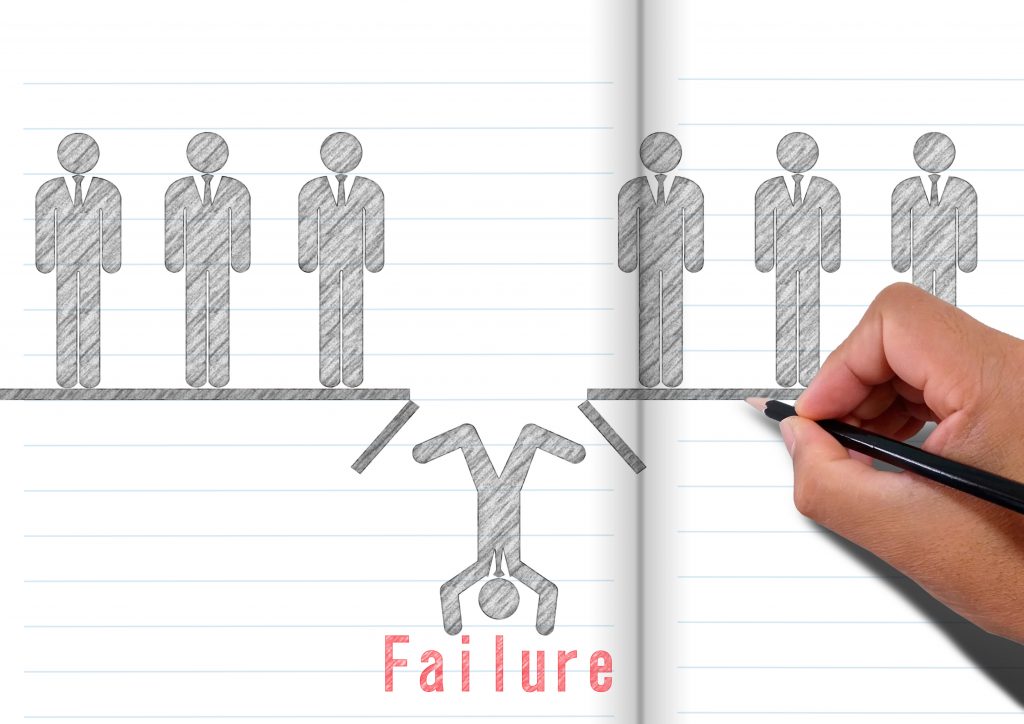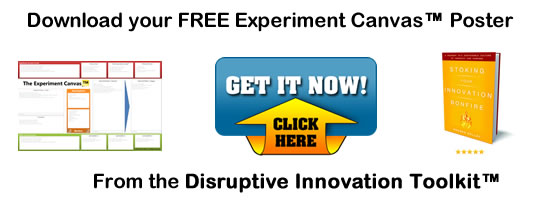The Real Reasons Failure Is Important To Innovation

We’ve all heard the mantras around failure.
“Fail fast. Fail often.â€
“Love your failures.â€
“You can’t succeed without failure.â€
But why? Why is failure so important to innovation and success? Why are we constantly being told to embrace failure rather than run away from it?
We are told often it’s because we learn the most from our mistakes. If we aren’t failing, we aren’t pushing the boundaries of what is possible.
In my 25 years in business, I’ve come to believe that there is actually a deeper, more emotional reason failure is important to each of us, personally and professionally.
Failure breaks down our egos.
Our egos keep us complacent, safe and right. When we fail, our egos get stripped away.
Once the failure is out there, why not take that risk? Why not make the bold move? Why not take a step back and really take a look at our mishaps? Why not be more innovative? You have nothing to lose after all…you’ve already failed.
The ego doesn’t like the prospect of innovation because it’s scary. Your ego doesn’t like the lack of certainty that innovation includes.
Here are the three reasons I believe failure is truly important to innovation and success:
#1 Suddenly open to listening to others
When your ego isn’t telling you that you have all the answers, you become open to other people’s perspectives and ideas. You admit you don’t know it all, and look to others to fill the gaps in your knowledge. With new people comes fresh thinking, different perspectives and important human connections that make your initial idea stronger.
When I was 24, I tried to launch an online fitness tracking business. Every time I ran the idea by people they said things like, “it’s too early†or “you may want to find a partnership with a big brand that can implement.†or “I have a few ideas that may make your idea better.†I didn’t want to hear any of it because of course, I knew it all. They clearly just didn’t see my vision and I definitely didn’t need their help. My idea was brilliant on its own.
Except it wasn’t, and the first attempt to launch failed. Actually, it failed in a big ball of flames that slammed to the ground. Then I had no choice but to listen. And when I did, everything changed. These people that I had ignored helped me see the holes in my thinking. They gave me solutions to my biggest challenges. They steered me in the right direction.
At that time, I needed to fail to be open to their voices. Now I listen as often as I can.
#2 Own your mistakes
What you can’t run or hide from, you own. When you own your mistakes you take accountability for them. When you take accountability, you can see your mistakes clearly. When you see your failures clearly, you can begin to do the real work of fixing or pivoting.
There is something freeing about removing the excuses and owning your mistakes. It allows you to take a breath, center yourself and work through it.
I once had a boss that was the king of finger-pointing. Nothing was his fault. Every little mistake could be traced to someone else or an external factor obviously beyond his control. Until one day when his failure was big and public and he unable to avoid the inevitable. But the most amazing thing happened. Unlike past excuses that allowed him to brush off his mistakes and move on, he was forced to face his epic failures head-on. That’s when everything changed. The idea that bombed led to his greatest success because, for the first time, he owned his reality.
#3 Get vulnerable, really vulnerable
Vulnerability is tough. It requires us to be raw and open. To say, “I need help†or “I don’t know what I’m doing.†We are so afraid of being vulnerable that we wrap ourselves in our fragile egos and pretend we have it all together. I don’t know about you, but I don’t have it all together. Heck, some days I don’t even feel like I have some of it together.
But real innovation requires vulnerability. It requires us to take a big leap outside our comfort zones and take risks when we aren’t certain of the outcomes. When we fail, we tend to get more vulnerable because we have no choice. But, it’s also where the innovation magic happens.
My mom recently sent me a packet of newspaper clippings from the early days of my career. They were various announcements about me taking a position as a leading executive at a global communications firm in New York City. When I re-read the articles I was transported back in time and reminded how insecure I felt. I had been offered, and accepted, a job way above my experience. I was so afraid someone would realize I had no idea what I was doing that I did my best to hide it.
I’ll never forget my first big presentation to the big wigs at the firm. I bombed so hard I was sure the people in the office across the street were shaking their heads in disappointment. Afterward, one of my bosses came into my office and said, “Tamara it’s ok to get some help in the beginning. We didn’t hire you because you’ve already done this. We hired you because we believe you can get us further. But you’ll need to admit what you don’t know if you want to make that happen.†It was a game-changing moment for me. Here was my boss giving me permission to be vulnerable. I think that’s some of the best advice I’ve ever received. However, I was only open to hearing his advice because I was in a moment of failure.
Now I have no problem pulling back the curtain, being vulnerable and even asking for help.
Failure isn’t just about learning, it’s about opening up.
Every day you have a choice. You can fear and avoid failure, or you can embrace it and all the messy, uncomfortable lessons it has to offer. You can give failure lip service or you can create a culture where listening to others, owning your mistakes and being vulnerable is encouraged.
Wait! Before you go…
Choose how you want the latest innovation content delivered to you:
- Daily — RSS Feed — Email — Twitter — Facebook — Linkedin Today
- Weekly — Email Newsletter — Free Magazine — Linkedin Group
 Tamara Ghandour of GoToLaunchStreet is a TED speaker and entrepreneur. From building and running multimillion dollar businesses, advising Fortune 500 like Disney, Procter and Gamble and RICOH on fostering innovative ideas and people. Tamara’s life is about breaking through the status quo for game-changing results, and that’s what her keynotes, online programs and assessments can do for you.
Tamara Ghandour of GoToLaunchStreet is a TED speaker and entrepreneur. From building and running multimillion dollar businesses, advising Fortune 500 like Disney, Procter and Gamble and RICOH on fostering innovative ideas and people. Tamara’s life is about breaking through the status quo for game-changing results, and that’s what her keynotes, online programs and assessments can do for you.
NEVER MISS ANOTHER NEWSLETTER!
LATEST BLOGS
Three things you didn’t know about credit cards
Photo by Ales Nesetril on Unsplash Many of us use credit cards regularly. From using them for everyday purchases to…
Read MoreFive CV skills of a business-minded individual
Photo by Scott Graham on Unsplash The skills listed on a CV help employers quickly understand your suitability for a…
Read More


